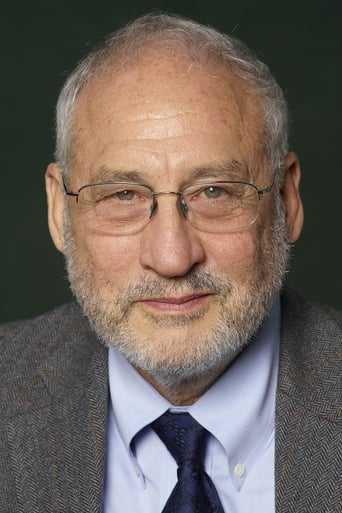2hotFeature
one of my absolute favorites!
ReaderKenka
Let's be realistic.
Brightlyme
i know i wasted 90 mins of my life.
BroadcastChic
Excellent, a Must See
carbuff
Well done, clear, but simplistic and incomplete explanation of financial collapse of 2008, the causes in toto of which will no doubt continue to be debated for decades. I see two major problems with this presentation. The first and most significant is that while the production does not completely ignore the role of the government, it hardly discusses it at all. The well- accepted truth is the the Gramm-Leach-Bliley Act (Financial Modernization Act of 1999) which eliminated the Chinese wall between investment banks and other banks (which occurred during the Clinton administration with Clinton's blessings) combined with a very extended period of low interest rates by the Fed is what set the stage for all of the private sector abuses to follow. The government failures are only glossed over in this production. The second, less significant flaw, is that the efficient market hypothesis is presented in an oversimplified manner. There are actually a few different versions of the efficient markets hypothesis, and many people accept less strident versions (like I do), in the sense that the market may not be "truly" efficient, but in reality it is still very, very difficult to beat the market and either escape a bubble before it bursts, or, if you are a regulator, to burst it before it grows too large. As a matter of fact, at this very moment, this is exactly what is keeping me awake at night with regard to my investments and, no doubt, what the individual Fed members are presently mulling over in private. We'll see which way things breaks this time, although I'm not personally optimistic that human beings have the ability and foresight to manage such a complex system with so few and such brutish policy levers.
Steve Schreiber
The Flaw delivers the story of the causes of the financial crisis and what may have caused it. There is bias in this documentary but it isn't as overt as most documentaries. The great thing and the reason why I believe that everyone should watch this movie is that this documentary delivers a the information of the financial crisis in a format that is easy to digest and gives great visual representation of everything that lead up to the collapse. The flaw of The Flaw is that there are some stories and story lines that are personal to one or two people instead of a whole audience. These stories, in my opinion, are David Sington's attempt to elicit an emotional connection and reaction to what happened with the financial collapse. This makes the documentary feel more personal and allows the viewer to feel more connected to the issues. That said, that is part of what I am not a huge fan of with these types of documentaries. I personally would have rather just had the information and the graphs and charts showing what happened without the personal stories so that the movie wouldn't feel so biased. This is a good documentary that is a scant 78 minutes, has good information and is easy to get through.
gacha2013
Only 2 reviews for this remarkable film? I leave the spoiler box unchecked, but really, the film is a "spoiler" since it refers to the most recent crash, a veritable implosion of the global economy based partially on mortgage backed securities. The film is British, so at the very least we have a fine mix of American and British academics in economics giving slightly different, but converging approaches to what happened.I've seen a number of films on the crash (fictional and documentary), and this one is by far the best. The film is technical at times, but this is necessary. Nowadays, many of the actors involved in the financial sector are "financial engineers." The days of simplicity are long gone. It's all algorithms and computers now. The film strikes a perfect balance between archival footage, expert discussion, and interviews with "real people" who were caught up in the real estate binge. And not all of those who bought houses were speculators, some just wanted a decent place to live, and maybe to use that decent place to consolidate debts. The title "The Flaw" seems to have come from testimony given by Greenspan who referred to a flaw in his own ideology. The irony of this Randian admitting a problem with his ideology should not be taken for granted. I walked away from this film wanting to watch it again. I hope more people will watch this film. This is not some kind of anti-capitalist diatribe. Instead the film methodically and subtly point out something we all know intuitively; capitalism as it presently functions cannot be sustained. There are no simple answers. Only some terrifying questions. And by the way, nothing was solved by the bailouts that wasn't short term. Nothing.
suite92
At the start of the film, there is no clear POV (point of view). Instead, the problem is approached in the style of showing each of ten blind men a different piece of an elephant. It takes some work to get the data returned by the blind men into something overarching and coherent, such as a single 3-d model of the elephant which explains all reportage.Brilliant; the experts were all correct, and the film put it all together by the end of the show.Cinematography: 8/10 The archival footage is not all that good. The modern interviews were crisp and well-done.Sound: 8/10 Almost everyone is properly miked. The archival footage of Greenspan versus Waxman in the House hearings was weak.Screenplay: 10/10 Obviously had a lot of careful thought. This is so well done that it moves well even with the large amount of detail and history being conveyed.



